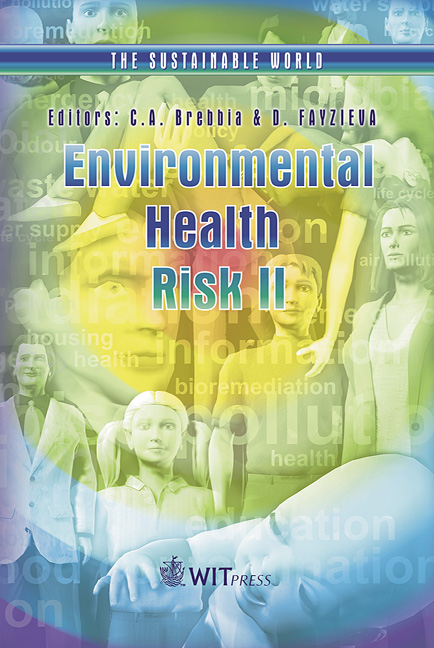Risk Analysis Of Persistent Chlorinated Organic Compounds, Dioxins And PCBs In Japan
Price
Free (open access)
Transaction
Volume
7
Pages
10
Published
2003
Size
1297.88 kb
Paper DOI
10.2495/EHR030181
Copyright
WIT Press
Author(s)
R. Masho & C. Tohyama
Abstract
Risk analysis of persistent chlorinated organic compounds, dioxins and PCBs in Japan R. ~ a s h o ' & C. ~ o h ~ a m a ' 'center for Environmrntal Inform~~fion Science, ,Japan '~nvironnwnlal Healllz Sciences Divi,~ion, hirtiol~ul lmtitrllc jbr Environnzel~tul Studie,,, Jrrpan Abstract As a reference value to protect humans from possible deleterious effects of dioxins (PCDD/Fs and co-PCBs), tolerable intake has been established as 4 pg- TEQ/kg-bwiday in Japan. For the general Japancse public, the primary source of exposure to dioxins is food, mostly through fish and its products. Co-PCBs contribute to nearly half the total dioxin intake on TEQ (2,3,7,8-TCDD equivalents) basis. The current level of exposure to dioxins for the general public is estimated to be less than the above-mentioned tolerable intake. A sleep yearly decline in dioxin release into the environnient is shown in the emission inventory largely due to the reduction in waste incineration, which is the predominant source on the inv
Keywords





